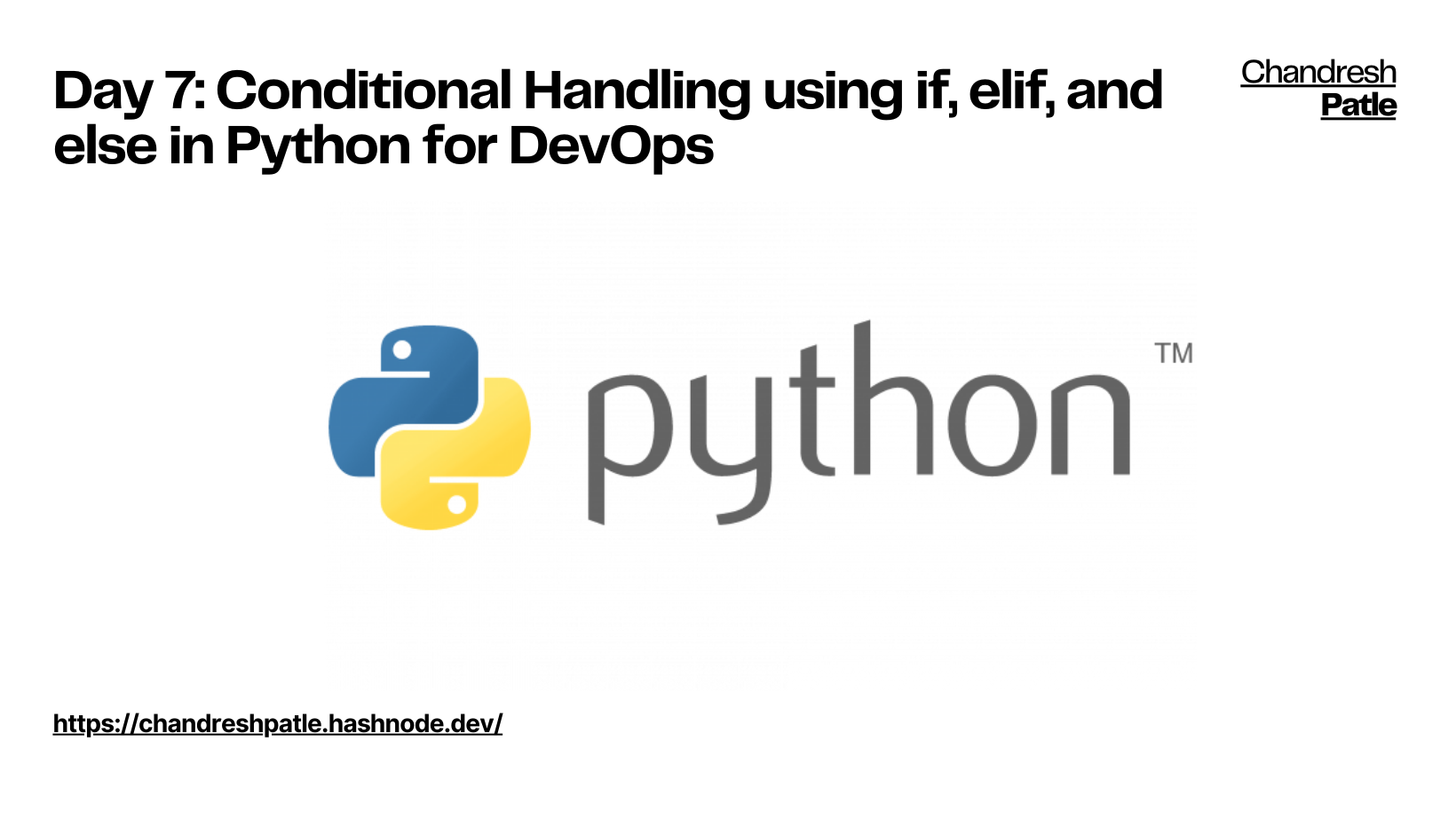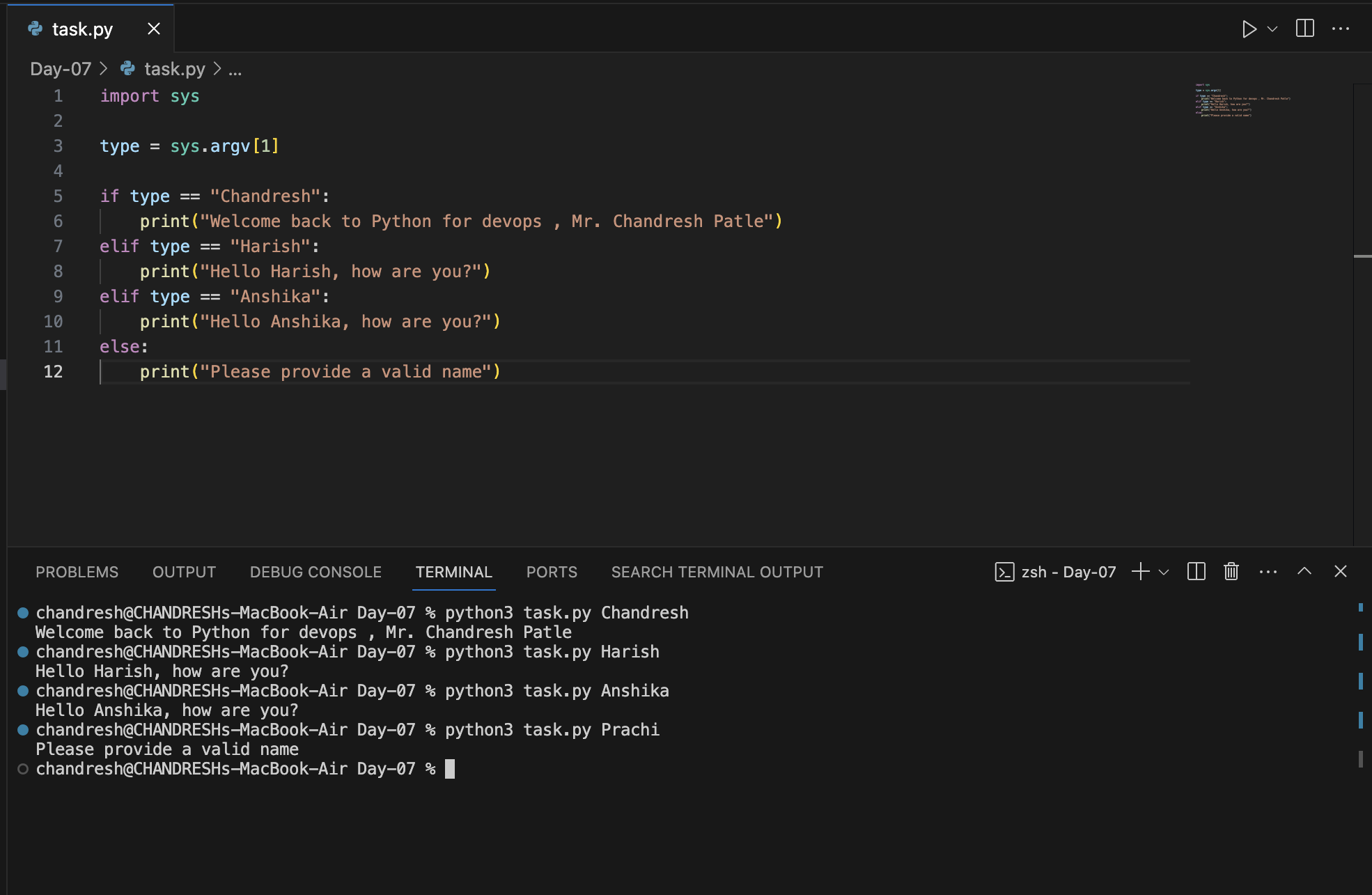Day 7: Conditional Handling using if, elif, and else in Python for DevOps
 CHANDRESH PATLE
CHANDRESH PATLE
Welcome back to our Python for DevOps series! In today's installment, we'll explore the power of conditional statements—if, elif, and else. Understanding these statements is crucial for incorporating decision-making logic into your DevOps scripts.
🔶Conditional Statements in Python
🔶 What are Conditional Statements?
Conditional statements allow your script to make decisions based on specified conditions. They enable the execution of different code blocks depending on whether certain conditions are true or false.
🔶 Syntax of Conditional Statements
1. if Statement:
The if the statement checks a specified condition. If the condition is true, the indented code block underneath it is executed.
if condition:
# Code block to execute if the condition is true
2. elif Statement:
The elif (else if) statement allows you to check multiple conditions if the initial if the statement is false.
if condition:
# Code block to execute if the condition is true
elif another_condition:
# Code block to execute if the "elif" condition is true
3. else Statement:
The else statement is used to define a block of code that will be executed if none of the conditions specified in the if and elif statements are true.
if condition:
# Code block to execute if the condition is true
elif another_condition:
# Code block to execute if the "elif" condition is true
else:
# Code block to execute if none of the conditions are true
🔶 Practice Exercises and Examples
Example: Conditional Handling in a DevOps Script
import sys
type = sys.argv[1]
if type == "Chandresh":
print("Welcome back to Python for devops , Mr. Chandresh Patle")
elif type == "Harish":
print("Hello Harish, how are you?")
elif type == "Anshika":
print("Hello Anshika, how are you?")
else:
print("Please provide a valid name")

🔶 Conclusion
Conditional statements are fundamental for creating dynamic and responsive DevOps scripts. They empower your scripts to adapt and respond intelligently to different scenarios. Stay tuned for Day 8, where we'll delve into Lists in Python for DevOps.
Note: I am following Abhishek Verraamalla's YouTube playlist for learning.
GitHub Repo: https://github.com/Chandreshpatle28/python-for-devops-av
Happy Learning :)
Stay in the loop with my latest insights and articles on cloud ☁️ and DevOps ♾️ by following me on Hashnode, LinkedIn (https://www.linkedin.com/in/chandreshpatle28/), and GitHub (https://github.com/Chandreshpatle28).
Thank you for reading! Your support means the world to me. Let's keep learning, growing, and making a positive impact in the tech world together.
#Git #Linux Devops #Devopscommunity #PythonforDevOps #python

Subscribe to my newsletter
Read articles from CHANDRESH PATLE directly inside your inbox. Subscribe to the newsletter, and don't miss out.
Written by